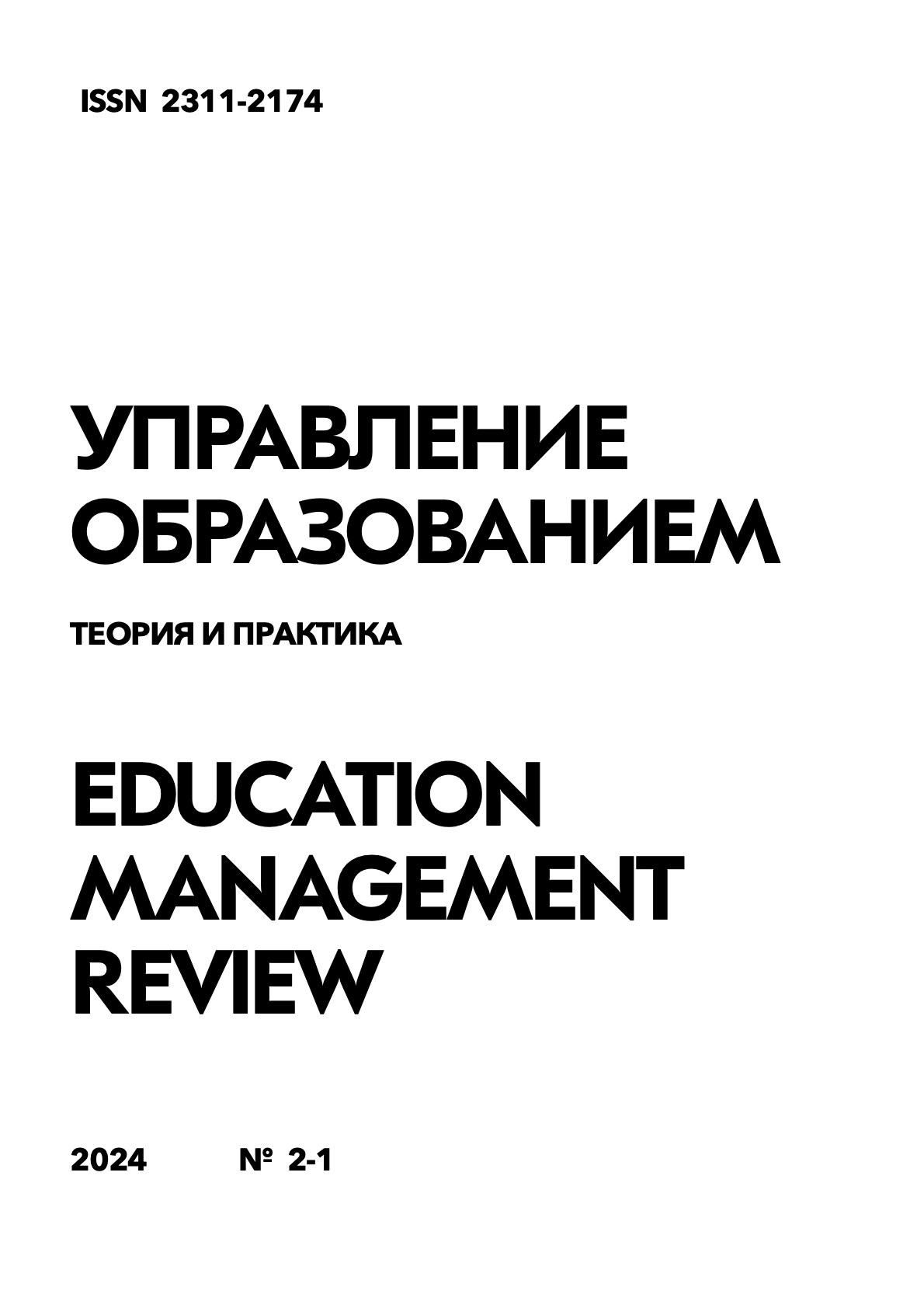The study of the influence of digital technologies on modern teaching methods and their application in the educational process
DOI:
https://doi.org/10.25726/g8847-9248-3087-yKeywords:
digital technologies, information and communication technologies (ICT), teaching methods, educational process, learning effectiveness, digital competenciesAbstract
In the era of digital transformation, when information and communication technologies (ICT) are rapidly developing and penetrating into all spheres of society, the education system is undergoing significant changes. This study aims to analyze the impact of digital technologies on modern teaching methods and their application in the educational process. Within the framework of the work, the theoretical and practical aspects of the introduction of ICT into the educational process were studied, the advantages and potential risks of using digital tools were considered, and the effectiveness of their application in various educational contexts was analyzed. Research materials and methods include a systematic review of the scientific literature on this issue, analysis of statistical data on the degree of integration of digital technologies into educational institutions at various levels, as well as empirical data obtained through surveys and interviews with teachers and students. In particular, the results of a survey of 120 teachers and 450 students from 15 universities in Russia were analyzed, aimed at identifying the features of using ICT in the educational process and evaluating their effectiveness. The results of the study indicate that the introduction of digital technologies into the educational process helps to increase the motivation and involvement of students, the development of their digital competencies and independent work skills. Thus, 78% of the teachers surveyed noted that the use of interactive learning platforms and multimedia materials can significantly improve the quality of learning. At the same time, the study revealed a number of problems related to the insufficient technical equipment of educational institutions, the low level of digital literacy of some teachers and the risks of excessive involvement of students in the virtual environment to the detriment of traditional forms of learning and socialization.
References
Дьякова Т.А., Жеребцова Ж.И., Холодкова М.В. Учебный лонгрид как способ организации цифрового образовательного интернет-ресурса по русскому языку как иностранному // Вестник Тамбовского университета. Серия: Гуманитарные науки. 2021. Т. 26. № 194. С. 113-124.
Егорова Ю.Н., Черемисина В.О. Психолого-педагогическое сопровождение формирования опыта конструктивного взаимодействия будущего специалиста // Проблемы современного педагогического образования. 2022. № 75-2. С.125-128.
Ибрагимов Г.И., Ибрагимова Е.М., Калимуллина А.А. О понятийно-терминологическом аппарате дидактики цифровой эпохи // Педагогический журнал Башкортостана. 2021. № 2(92). С. 20-34.
Игнатьева Г.А., Сдобняков В.В. Проектирование персонализированного дополнительного профессионального образования педагогов: событийно-позиционная методология // Вестник Мининского университета. 2022. Т. 10. № 3(40). С. 1-26.
Казарбин А.В., Драчев К.А., Лунина Ю.В. Развитие инженерного мышления средствами научно-исследовательской деятельности студентов // Педагогический журнал. 2021. Т. 11. № 3-1. С.213- 221.
Кожевникова М.Н., Хамраева Е.А., Ряузова О.Ю., Юдушкина О.В. Формирование социокультурной среды средствами лингвострановедческого контента при обучении РКИ // Наука и школа. 2021. № 6. С. 162-172.
Лапидус Л.В. Стратегии цифровой трансформации бизнеса в условиях нарастающей турбулентности цифровой среды // Управление бизнесом в цифровой экономике: сб. тез-в выступ-й IV Междунар. конф., Санкт-Петербург, 18-19 марта 2021 г. СПб.: СПбГУПТД, 2021. С. 20-25.
Лебедева М.Ю. Цифровая трансформация в обучении русскому языку: ожидания преподавателей // Динамика языковых и культурных процессов в современной России. 2022. № 7. С. 1339-1343.
Лёвина Г.М. Специфика преподавания РКИ в цифровую эпоху. Часть 1. Уровень А1: монография. М.: Ай Пи Ар Медиа, 2022. 190 с.
Пашковская С.С., Хэ С., Чжун Г. Инновационные технологии и современная модель обучения русскому языку как иностранному // Буслаевские чтения: сб. науч. ст. по мат. IX Всероссийской науч.-прак. конф. с междунар. уч. Пенза: ПГУ, 2021. С. 378-380.
Попов А.Н., Хандримайлов А.А., Малахова О.Ю. Формирование корпоративных компетенций будущего инженера ресурсами образовательного процесса технического вуза // Проблемы современного педагогического образования. 2022. № 74-2. С. 188-191.
Рамазанов Р.Г., Годунова Е.А. Возможности и перспективы stem-образования в системе повышения квалификации педагогов // The Scientific Heritage. 2020. № 50-5(50). С. 26-31.
Рожик А.Ю. Креативная составляющая инженерного мышления: теоретическое и экспериментальное исследование // Вестник ЮжноУральского государственного университета. Серия: Образование. Педагогические науки. 2018. Т. 10. № 2. С. 89-108.
Сазонова З.С., Чечеткина Н.В. Развитие инженерного мышления - основа повышения качества образования: учебное пособие. М.: МАДИ (ГТУ), 2007. 95 с.
Сдобняков В.В., Игнатьева Г.А., Тулупова О.В., Соткина С.А., Моисеенко А.В. Сетевой проект подготовки наставников по развитию. Практикоориентированная монография. Нижний Новгород: Мининский университет, 2022. 64 с.
Стрельчук Е.Н. Перспективы онлайн-обучения русскому языку как иностранному в вузах РФ // Русистика. 2021. Т. 19. № 1. С. 102-115.




